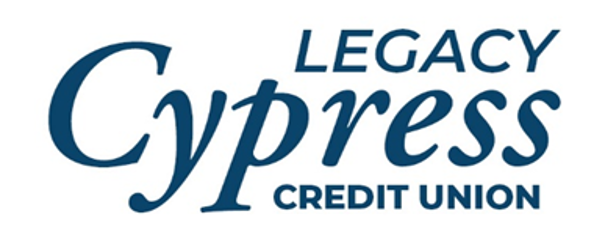Here are ten guidelines for estate planning firms and other companies on trust administration. This is especially useful when you are evaluating an entity to assist in managing, directing or serve in a the role of trustee for the Trust. Each tip is accompanied by a detailed description including pros and cons to help make an informed choice.
1. Examine Conflict Resolution Approach
Tip - Trust companies should have a clear policy on how to resolve disputes between beneficiaries or co-trustees.
Reduces the risk of legal action, reducing tensions in the family.
Pros: Improper handling could cause litigation or a breakdown in trust.
2. Make sure you have digital Access and Tool
Check if your firm has a secure portal where you can view documents, reports and activities associated with trusts.
Pros: Modernized service, improved accessibility.
Pros: Not all clients are tech-savvy, and security needs to be strong.
3. Understanding Their Scope of Service
Tip A few firms do not offer complete estate and investment services.
Benefits: Matches services to meet your needs.
Pros: Full-service businesses can be more expensive or less specialized.
4. Consider the possibility of specialization in complex Trusts
Ask the firm whether they specialize in charitable, dynasty or special needs trusts.
Cons: Doesn't provide custom strategies or assure that the regulations are in compliance.
Pros: Some generalist firms are prone to mishandle trusts that are specialized.
5. Ask about integration with Estate Plans.
TIP: Make sure the firm you choose will work with your estate lawyer and financial planner effortlessly.
Cons: Planning holistically ensures consistency.
Cons: Inadequate coordination and planning can cause errors.
6. Examine the responsiveness of Beneficiaries
For a suggestion, great companies manage expectations and help their clients while supporting their clients.
Pros: Increases trust and prevents legal disputes.
Cons: Firms that aren't experienced can be overly generous or too restrictive.
7. Confirm coverage area and jurisdiction
Verify that the firm is legal to be operating in your state, and can handle assets from multiple states, or even internationally if needed.
Pros: Lowers the risk of legal infringement and compliance concerns.
Cons: Some firms can only have a presence in certain jurisdictions.
8. For more information, ask for information on Ethical Standards as well as Professional Standards
Tips: Find firms that have high standards of conduct, such as the American Bankers Association.
Pros: Increases credibility and professionalism.
Cons: Even companies that are certified aren't immune to the possibility of inconsistent service levels.
9. Verify Insurance and Bonding
Tip: The firm should carry the liability insurance as well as be insured to guard against mistakes or fraud.
Pros: Provides financial protection against fraud.
Cons Not all types of loss.
10. You can also read our client reviews and testimonials.
TIP: Ask for testimonials, or look up reviews from third parties and professional networks.
Pros: Provides real-world insight into the quality of service.
Cons Reviewers who have cherry-picked reviews, or not verified. Read the top trust administration for estate planning for site examples including financial services companies, most recommended bank, big financial companies, best banks to use, banks tx, community bank loan, new community bank, private banking, investment banks, best rated banks in florida and more.

Jacksonville Business Bank Accounts: 10 Tips
Here are twenty detailed tips on business banking accounts located in Jacksonville Florida. Every tip includes an explanation and pros and cons to aid you in making your choice.
1. Inquire about Accounting Software Integration
Tip: Ensure your bank has the ability to connect with copyright, Xero, or Wave to make bookkeeping easier as well as tax preparation.
Pros: Reduces time and decreases the chance of making manual mistakes.
Cons: Some integrations may be expensive or not be compatible with smaller banks.
2. Explore Business Savings Accounts or Money Markets
Conserve any excess funds in a high-interest savings account. Choose options that offer high-quality APYs that have no or low minimums.
Profit from cash that is idle.
Cons: Monthly withdrawals limited; minimum amount of balance required.
3. Access to multiple users accounts via role controls
TIP: Select one that permits multiple logins and access rights (e.g., view-only for accountants, full access for managers).
Cons: Increases security and accountability.
Cons: Some financial institutions charge users extra or limit controls.
4. Confirm Cash Deposit Policies
Find out about daily limits for deposits and charges, and also if night drops are offered for cash transactions.
Pros: Keeps cash secure; ensures quick deposits.
Cons: The deposit fees per transaction or $100 can be expensive.
5. Calculate the cost of wire transfers and ACH
Compare domestic and International Wires as well as ACH Batch Payments.
Benefits: This software can be useful for companies that are looking to pay their suppliers or employees electronically.
Cons: The fees can be very high, and banks with small size may not want to offer ACH.
6. Check for tools to prevent fraud
To prevent fraud, inquire about positive payments double approval real-time notifications, as well as token authentication.
Pros: Secures the data of your accounts and also your account.
Cons: Certain premium account tiers may not be available.
7. Learn to Know your Business Banker
Tips: Build a rapport with a banker who is experienced and will provide financial advice, speed up credit and offer speedy service.
Benefits: Individualized help and faster decision-making.
Cons: Some banks are large and have staff that changes or is not consistent.
8.Verify FDIC insurance coverage, or NCUA coverage
Tip: Make sure you verify your bank accounts up to $250,000 per person, per bank.
Pros: Provides protection in the event of a bank failure.
Cons: You might need to spread your funds across several banks in case you have more.
9. Choose banks that support community initiatives
Tip - Many local banks provide support to Jacksonville's ecosystem of small businesses through grants, events, sponsorships and other means.
Benefits: Helps build brand recognition and network.
Cons: Not enough support for certain nonprofits and sectors.
10. Prepare all required documents before opening the account
Tip: Prepare your EIN, Articles of Incorporation, business license, and operating agreement.
Advantages: Smoothens onboarding process.
Cons: Can be delayed when documents are insufficient or incongruous. Read the top banks near me in Jacksonville FL for more advice including us bank phone number, bank 1, banking system, bank of west, top 10 banks in the us, top 10 best banks in florida, bank with united login, bank of missouri credit card, bank 1, best online bank in usa and more.
